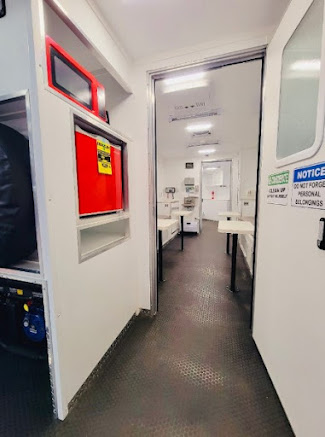The Function of Mobile Medical Care Units in Rescue Operations and Emergency Aid
Natural or man-made disasters can have a huge impact on communities by producing broad devastation and frequently leaving many people in need of immediate medical care. Mobile medical care units can be extremely important in these situations for delivering quick and dependable emergency medical care to those who are affected and in need. The function of mobile medical care units in disaster relief and emergency response will be covered in this blog.
When emergency calls for a rapid response, mobile medical care units
are prepared with the personnel, equipment, and supplies needed to provide
on-site medical care. They are made to be portable, readily moved from one spot
to the disaster area, and swiftly set up to offer medical care to those who are
in need. These facilities might be tiny, with a single healthcare professional
on duty, or large, with several healthcare experts and a wide range of medical
equipment.
Moreover, mobile medical care unit can offer triage services, which entail
evaluating patients and prioritizing their care in accordance with the seriousness
of their wounds or illnesses. In emergencies where resources may be scarce, it
is important to make sure that those who need medical attention the most get it
immediately.
The provision of psychological support to
those impacted by the disaster is another function of mobile medical care units
in emergency response and disaster relief. Disasters can be traumatic and
result in severe psychological discomfort, including post-traumatic stress
disorder, anxiety, and depression. Those affected by the disaster can receive
support and counseling from mobile medical care units, which will help them
deal with the trauma and heal more rapidly.
In urgent cases, mobile medical care unit can also aid in limiting the spread of
infectious diseases. Disasters can damage sanitation and hygiene, increasing
the risk of infectious diseases. In addition to screening and treating patients
for infectious diseases, mobile medical care units can offer instruction and
assistance on good sanitation and hygiene practices. Last but not least, mobile
medical care units can aid in the recovery efforts in disaster-affected areas.
In conclusion, mobile medical care units
are essential for emergency response and disaster assistance. Mobile medical
care units have a hugely important impact on healthcare delivery and patient
outcomes by offering high-quality, prompt, and comprehensive care in emergency
situations.




Comments
Post a Comment